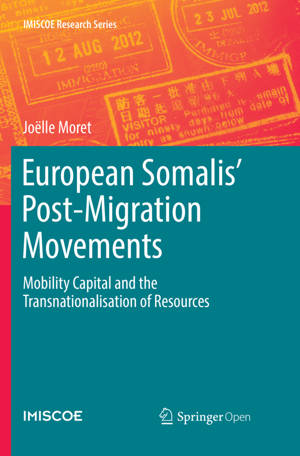
- Retrait gratuit dans votre magasin Club
- 7.000.000 titres dans notre catalogue
- Payer en toute sécurité
- Toujours un magasin près de chez vous
- Retrait gratuit dans votre magasin Club
- 7.000.0000 titres dans notre catalogue
- Payer en toute sécurité
- Toujours un magasin près de chez vous
European Somalis' Post-Migration Movements
Mobility Capital and the Transnationalisation of Resources
Joëlle Moret
52,95 €
+ 105 points
Format
Description
This open access book highlights the relevance of various types of cross-border movements in the post-migration lives of women and men of Somali originBrings together conceptual insights from the migration studies and the mobilities studies to understand migrants' biographies
Contributes to an emerging field that aims to trans-nationalize theories of social inequalities
Contributes to an emerging field that aims to trans-nationalize theories of social inequalities
Spécifications
Parties prenantes
- Auteur(s) :
- Editeur:
Contenu
- Nombre de pages :
- 213
- Langue:
- Anglais
- Collection :
Caractéristiques
- EAN:
- 9783030070793
- Date de parution :
- 29-12-18
- Format:
- Livre broché
- Format numérique:
- Trade paperback (VS)
- Dimensions :
- 156 mm x 234 mm
- Poids :
- 317 g

Les avis
Nous publions uniquement les avis qui respectent les conditions requises. Consultez nos conditions pour les avis.






